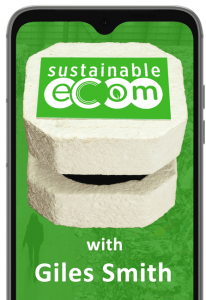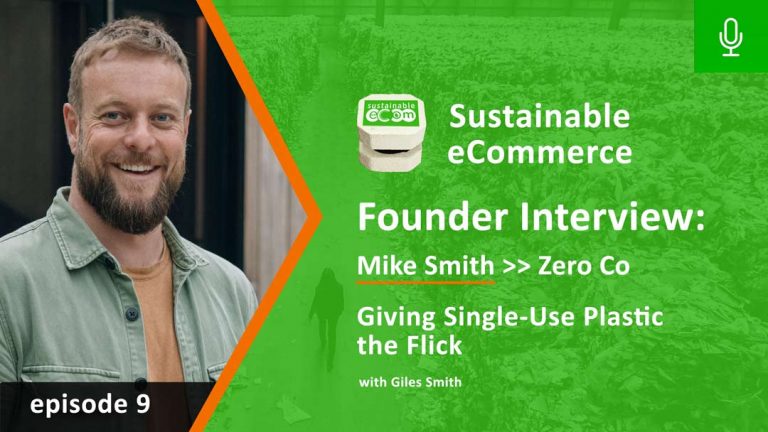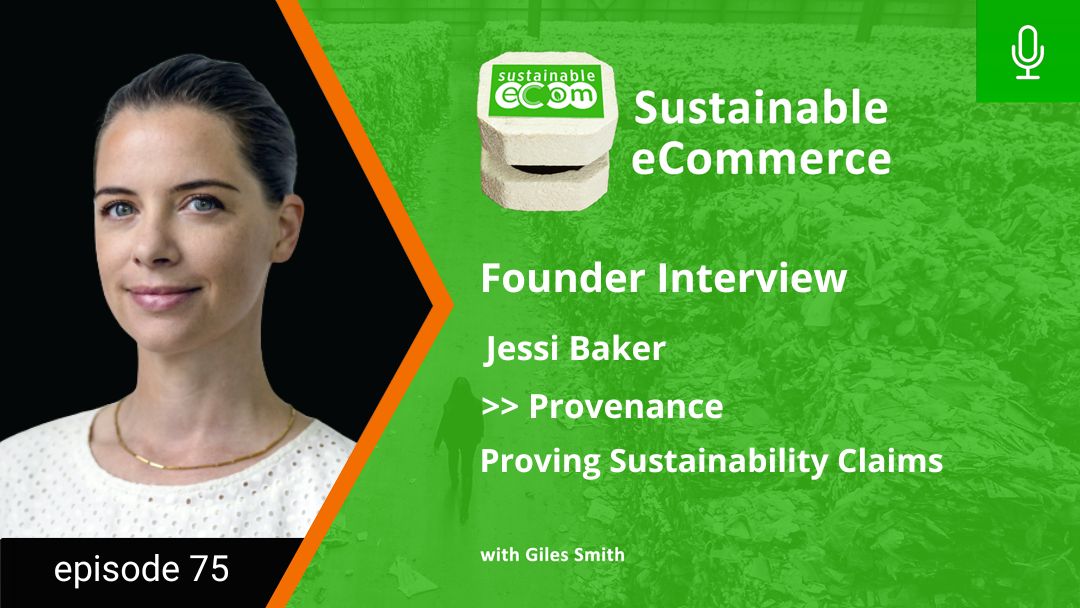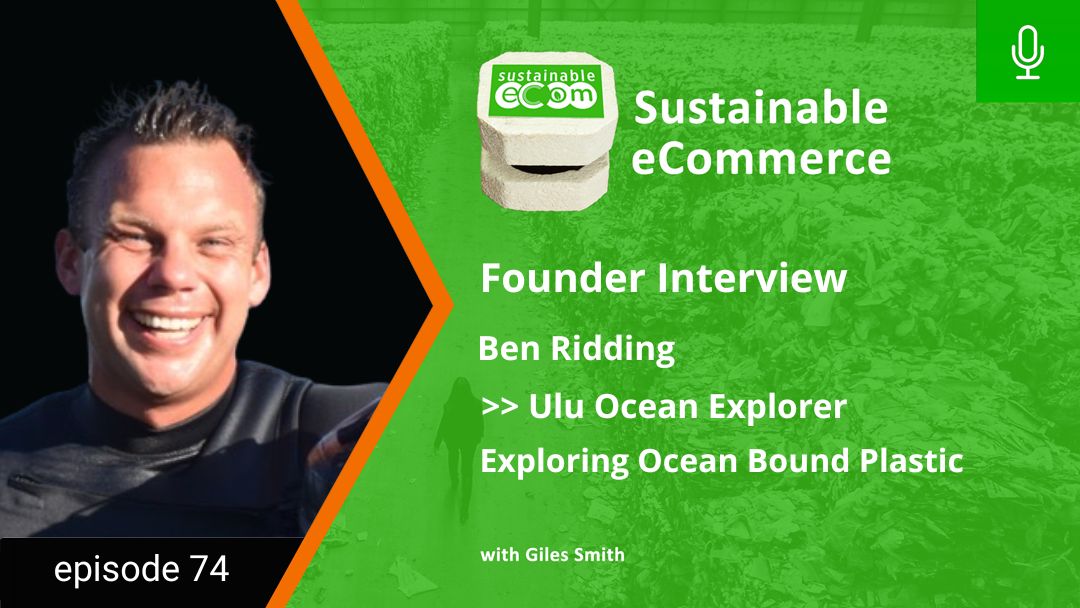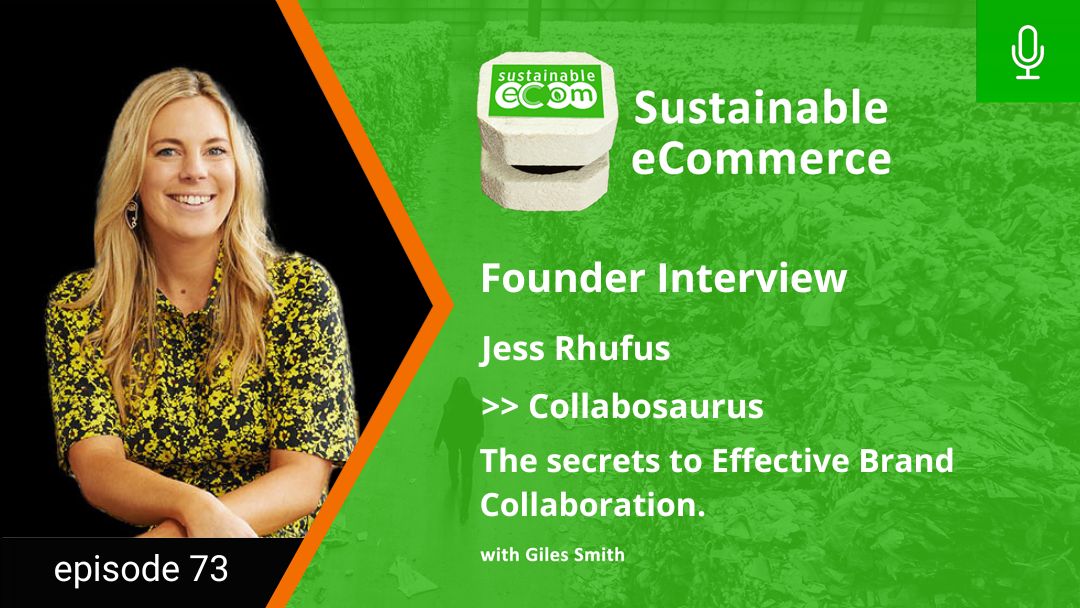Welcome to Episode Nine of the Sustainable eCommerce podcast!
Today I'm joined by Mike Smith, founder of Zero Co. Zero Co's mission is nothing less than removing single-use plastics from our kitchen, bathroom and laundry cabinets.
We unpack the Zero Co journey, starting from Mike finding plastic at the bottom of an alpine lake, all the way to growing a nine figure brand, just two years after launch. Along the way we learn some key insights into acquiring funding as Mike shares how they broke multiple Australian records, including the biggest Kickstarter campaign of 2019 and the fastest ever crowd equity round.
We also hear Mike's views on the importance of community and how their values around radical transparency have been critical to helping them build a passionate and engaged audience united in the fight against single use plastic.
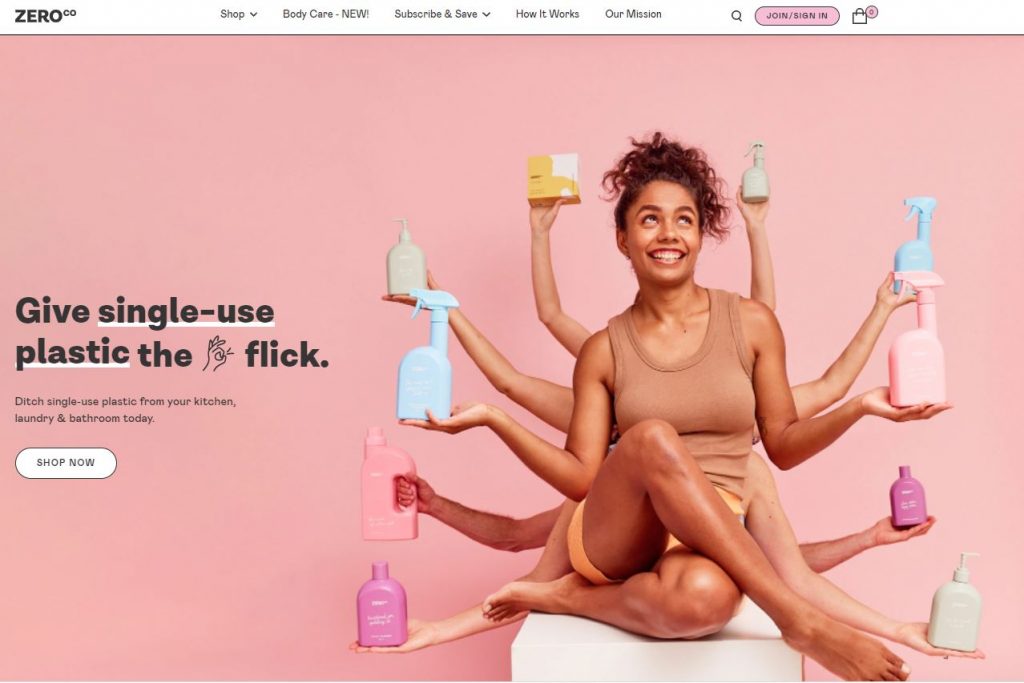
Giles Smith: Mike, Maybe you could start today by explaining about who Mike Smith is, how you came to starting Zero Co and what the purpose of the whole thing is.
Mike Smith: Thank you for having me. A little snapshot of what Zero Co is first, before we go into the backstory. We make personal care and home cleaning products, stuff like shampoo, conditioner, deodorant, laundry liquid. But what we do is we deliver it to customers in a completely closed loop business model, which is designed to do two things.
Our mission is to un-trash, the planet. We do ocean cleanups, getting plastic out of the ocean, and turn that plastic into what we call a “forever bottles” that you keep at your house and can be refilled forever. And then the second part of the mission is stopping, single-use plastic being made in the first place.
We do that by sending customers a refill pouch that they send back to us after emptying into the forever bottle. We can clean it and refill it and set it back out to another customer.
The forever bottle funds ocean cleanups. Since we launched about 15 months ago, we've pulled out 800,000 water bottles worth of rubbish out of the ocean. Then, the re-usable pouch gets shipped back and forth between us and the customer to stop single use plastic being made in the first place.
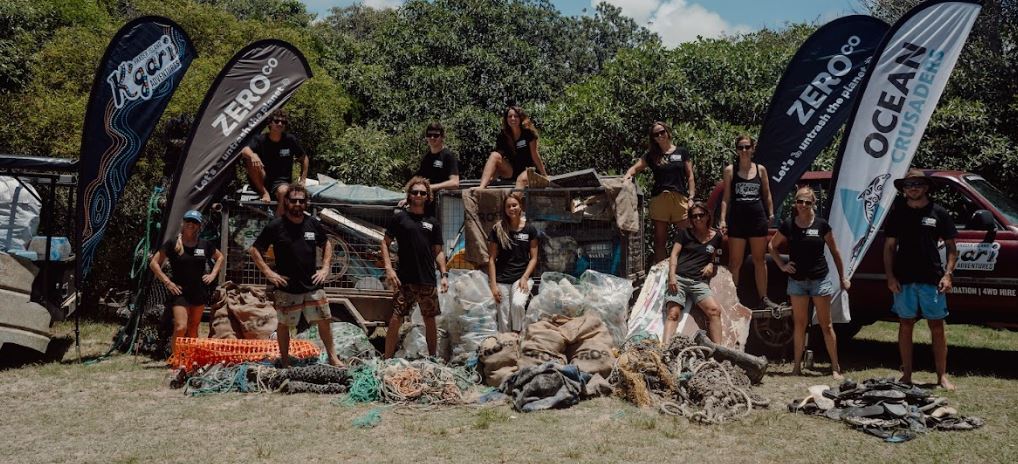
So that's what the business does. Then in terms of a bit of backstory, I have been in the startup space for about 15 years. This is my third business now. I think I've had all of the possible startup experiences that you could imagine ranging from outright failures, flunking my life savings through to growing, a pretty successful 10-figure business that is Zero Co, and everything in between.
The foundation story for Zero Co began in 2018, I sold my previous business, which was a wine brand called Cake Wines. I convinced my wife to pack up our lives and go on what we hoped was going to be the trip of a lifetime. We essentially tracked and camped our way around the world for about eight months. We tracked along the border of Afghanistan and Tajikistan, went to North Korea, we went to Kamchatka in the far Northeast of Russia, stayed in Kurdish villages along the Iraq-Iran border. You know, we just tried to get as far away from the tourist-trail as possible.
About halfway through the trip, I was drawn to the amount of rubbish that I was finding in some of these remote parts of the world. When you go to really big population centres like China or Indonesia, they are developing countries without waste infrastructure. You really expect to see lots of rubbish and you do. But when you go to these really, really remote parts of the world and you find plastic bottles at the bottom of alpine lakes at 5,000 meters above sea level, it really affected. Most people don't fully comprehend the scale of this plastic problem because people don't come into these pockets of wilderness and see that it's made its way literally to every corner of the planet.
So I came back to Australia with this really strong insight about what we have to do to solve the plastic problem globally. How do you get plastic out of the ocean at scale? And how do you stop single use plastic being made in the first place? I started going to the supermarket when I came home and spending a lot of time in the supermarket, because that's a place where lots of single use plastic is consumed. I found myself spending more and more time in the last three aisles of the supermarket, which is where all the personal care at home products are arranged. Still to this day, when you go into those Isles, it is floor to ceiling, end to end single-use plastic.
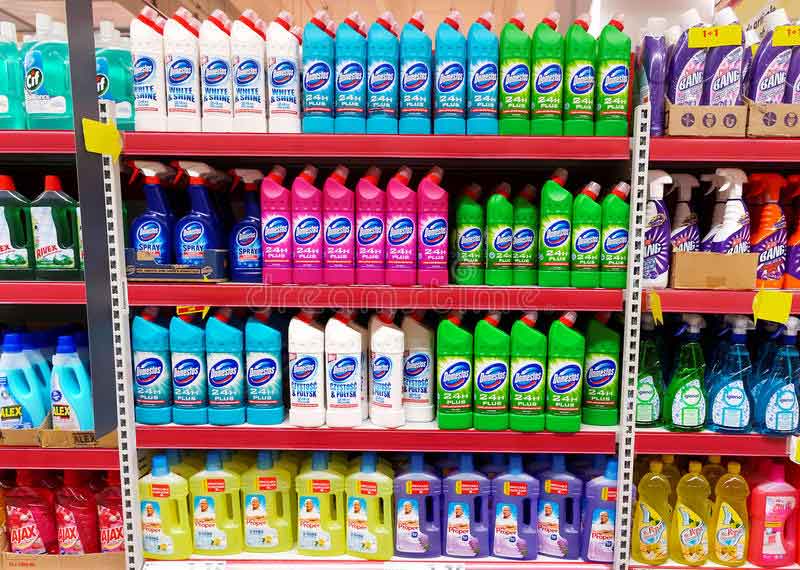
Giles Smith: Much of it virgin plastic too.
Mike Smith: It is, it is. About a billion single use plastic bottles are made, purchased and thrown away in Australia every year, just in personal care and home cleaning, which is astronomical.
So then I said, all right, this is the industry I'm going to go into. This is the category I'm going to use as the lever to try and have an impact on the single use plastic problem. Completely naively! I had never built a personal care, home cleaning brand before and had no expertise in the plastics industry.
I'm not an industrial designer. I'm not an engineer. I was the biggest novice when it comes to solving this plastic problem, both from the plastic economy based, but also from the industry that I was about to go into. But I think that allowed me to come in and look at this whole space with fresh eyes, and build a solution from the ground up that was designed to solve this problem in its totality from day one.
Giles Smith: I love the story about how it was finding plastic in the wilderness areas that got you thinking. It's one thing to read the reports of microplastics and the ocean gyres and all that sort of stuff. It kind feels academic until you really see it and experience it.
The goals of the company are enormous. Can you tell me how you started to get people on board with that mission?
Mike Smith: So my hypothesis about how this plastic problem is going to be solved globally has really led to everything we've done from a tonality and communications perspective around the business. I believe that it's not governments who solve this problem. Governments are really inefficient and there's so much debating and arguing and squabbling that goes on. We've known about this problem for 50 or 60 years now, and no one's done anything about it. I think it isn’t going to be big business that solves this problem, because they are so invested in the petrochemical industry and in plastic production. They’ve got these huge billion-dollar supply chains that are built to make and pump out single use plastic.
And I don't think it's going to be charities who solve this problem because they don't have the global scale or kind of the innovation credentials to solve it. So my hypothesis from day one has been that I believe it's going to be a movement of people, everyday. People from all around the world who makes small lifestyle changes, which add up to big, huge impacts on a global scale.
So that's how I think we're going to solve this problem globally. We have from day one said we are going to build a people-powered solution to the plastic problem. And therefore, everything from day one is about building community and inspiring people to come on this journey with us.
Nobody has a perfect solution to this problem. ZeroCo is not a perfect solution. But if we all work together, we will get through the stages of innovation that we need to go through to find a really, really great solution. So, from day one, it has just been about putting the community, putting everyday people right at the heart of everything we do.
I think one of the great things about this environmental problem versus some other ones, there's not really any public debate about the need to reduce single use plastic. You know, there's no rallies out on the street with people saying, let's put more single-use plastic in the ocean. We all kind of agree that we need to stop doing it.
Giles Smith: It's so inspiring hearing you talk about that. So passionately and so authentically as well, which is messaging that’s carried all the way through your customer journey as well.
On your home page you have simple purpose-driven messaging heroing the customer. And that theme runs all the way through the customer journey, even on your product labelling. For example the message on your air freshener states “The sweet, sweet smell of saving the planet”. I mean, how fun is that?
That is having fun and engaging the customer in your mission. Very powerful!

Mike Smith: Yeah, it's been an evolving process. You come up with an insight or a core idea and you iterate on it. You put it into the world, you see what works and you improve on that. But we spend a lot of time thinking about our community every day.
We try and make our community the centre point, the focal point of everything that we do.
The way we think about our customer journey is we want to go and find as many strangers out there in the world as possible, invite them to become part of our journey and then take them through this very tailored process. And the end of that customer journey is to try and make as many of our customers owners of our business as possible.
Because if we can align the financial interests of us and our community then we are all aligned. We're all on the same journey to solve the plastic problem and to build a successful business. And so yeah, this community minded concept is absolutely core to our business.
One of the other things that we do is we try and have a bit of fun with everything we do, because, solving big environmental problems or any big problems in the world can feel really daunting at times. So we try and have fun and we try and just not make this too serious and stuffy. But if we make it a bit fun, we're going to have a lot more chance for solving it together.
Giles Smith: Transparency is always going to be a big thing for you. And I know that you guys have “radical transparency” as part of your ethos. Tell us a little bit about that. How important is that to that whole customer engagement piece?
Mike Smith: It's massive. It's an incredibly important part. It's one of our core brand values. I think there's been a lot of suspicion built around a lot of the bigger companies out there that have used questionable marketing messages around recycling for example. Recycling is not a thing! Only 15% of all the plastic that we use in Australia actually gets recycled. 85% of everything we use ends up in landfill or, or worse in the environment.
And so there's rightly so a lot of cynicism around sustainability, especially when bigger companies talk about their sustainability credentials whilst they're not really doing anything. I think the silver bullet to that is to be radically transparent and not just make these off the cuff sweeping statements.
And, you know, throughout the Zero Co journey, there have been a heap of f*ck-ups and I've put them all out into the world and I've owned them. It's so refreshing for so many people. It's so surprising that more people don't do this. More companies don't do this, because when you are honest and radically transparent people rally around you and come to your aid. So it's been an incredibly powerful and incredibly important part of what we are doing at Zero Co.
Giles Smith: We find ourselves in an interesting kind of place in the journey of this with regards to greenwashing. There's plenty of big businesses doing it. There's plenty of small businesses that are doing a lot of good things, but then accidentally greenwashing as well. I think the cancerous part of that ultimately is that it leads to green hushing.
What would you say to other people to give them the confidence to get across that green hushing barrier and openly be transparent and talk about what they are doing?
Mike Smith: So for us, it's about always putting the mission at the front of everything that we do. We always lead with the mission. We use that as our north star, every time there's a decision to make we say, does this get us closer to achieving our mission? And if it doesn't, then it's not the right thing for the business to do. And so having so much belief in this mission and this cause allows us to just not get distracted, not get sidetracked.
We talk openly to the public about where we're trying to get to and it's going to take us a decade to get there. We may never get there, but if we just keep pushing in that direction and don't let anything derail us, then that's how we're going to get to our goal. Right. So having that as the center-point of the kind of philosophy allows us to go out and just tell people about all of the things that go wrong.
It's all part of the journey of getting to the solution.
The perfect example is we're based in the Northern rivers, our offices in Byron bay. We've got a facility out in Lismore. A couple of weeks ago there was a one in 500 year flood. One of the facilities where we were storing returned pouches got flooded. 10 pallets of our used pouches just got destroyed and in the cleanup the factory just loaded it all into landfill. All the phone lines were down, and so we found out about that two days later. A lot of companies would have just hushed that over. We went to the facility, got on social media, we made a video, we found some of the pouches that had been destroyed and we let the community know. That is exactly the opposite for what our business model is about. We apologized for it. We are gutted by it, but it's happened.
But our posts about when things don’t go according to plan, they are the most engaging forms of content that we produce! We get the most likes. We get the most shares. People just love the fact that we're being honest and we're owning up to them. The single most powerful type of communication that we have in our arsenal is radically transparency.
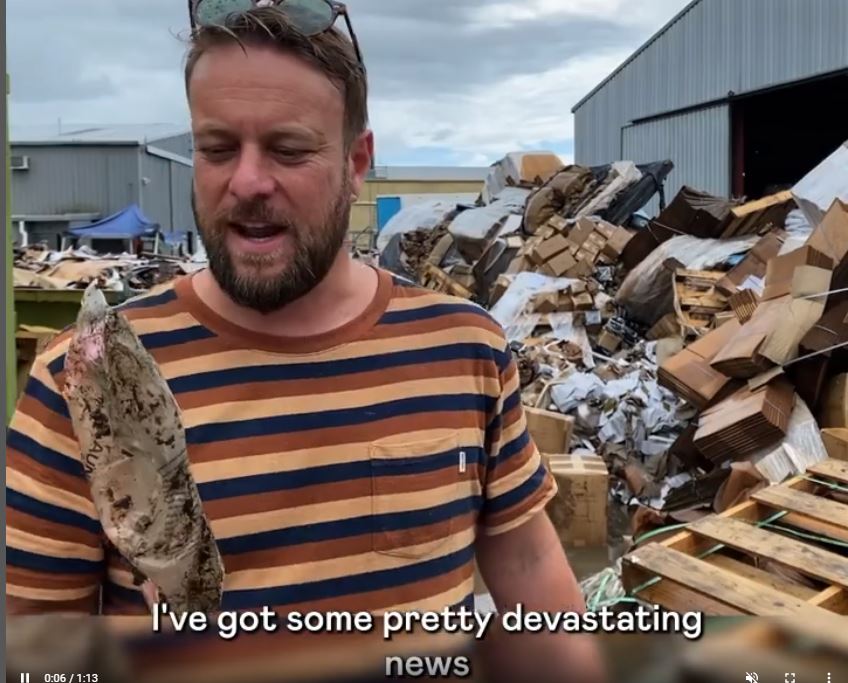
Giles Smith: Such a very powerful message! One of the other things that I think is a standout amongst at least Australian startups in this space is the ability that you've had to generate funding for your enterprise. Can you tell us a little bit about the main avenues you’ve used and give some tips that other people could use to get funding for their own brands?
Mike Smith: I think of our success in raising funds as being a culmination of all of the things that we are doing, the totality of this thing that we've built. In terms of the fundraising journey when we first launched this business, again, we were trying to build a people-powered solution from day one. And so the first thing we did was launch a Kickstarter campaign to allow people to come on the journey. I'd never run a Kickstarter campaign in my life I was very nervous about it, very trepidatious. I had no idea how to pull it off, but we ended up doing the biggest Kickstarter campaign of 2019 to launch our business!
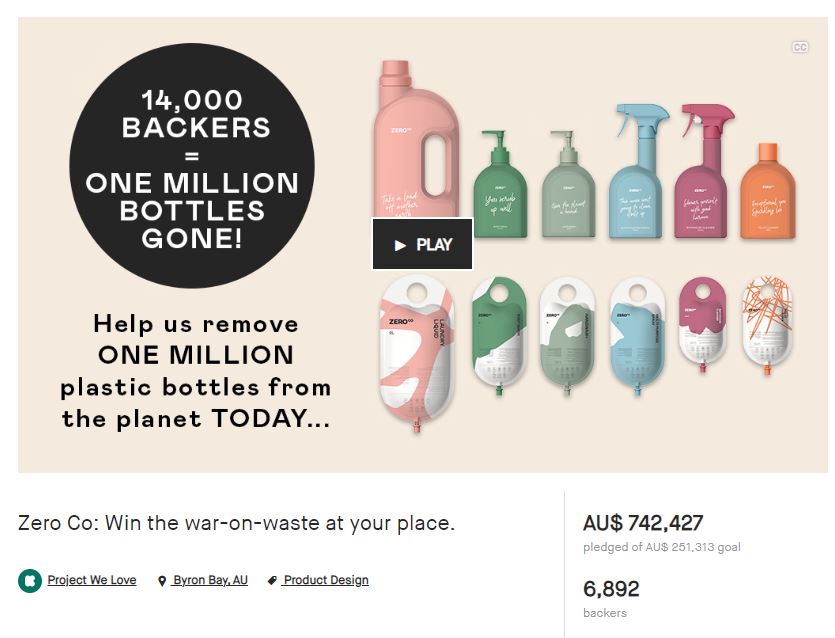
We raised about $750,000 worth of pre-orders, which did two things. It gave us some cashflow to get the business on the way to go and do ocean cleanups, make all the packaging, etc, but it also gave us our first community.
So, we had almost 7,000 Aussie households pre-order a box. The third thing was it sent a signal to the investor community that this thing had traction. Prior to the Kickstarter, I went out and I pitched this idea to every VC fund, every private investment group, every incubator program in the country.
And everybody said no.
But as soon as we did a Kickstarter campaign, we proved that there was traction. That just completely changed our ability to raise funds. So we were then able to go and get some secondary funding from VCs, which allowed us to get into market and scale up the business.
We got to just over a million dollars a month in sales in under 12 months, which was driven by building this community of people. And then we were able to turn around 12 months after we'd launched and invited our customers to become shareholders. Again, I'd never done an equity crowdfunding campaign before, but we went on to break the Australian equity crowdfunding record. We raised $5 million from our community in under six hours, which was just mind boggling. And I think the previous record was a $3 million raise in about two weeks. We had about 3000 of our customers buy shares in our business, which was incredibly exciting. Again, this was built off the back of all these things that we've done before: building community, getting traction in market, and having a really awesome mission-led business.
The other really important thing for us in the fundraising process was building a team of experts from day one. I knew I wasn't going to be able to pull this off by myself. So, I spent a lot of time and effort going and convincing a whole bunch of super senior people in similar industries to come and join our business.
I convinced the ex-global head of operations from Koala mattresses to join us as our COO. Dr. Kate Forbes, who's the ex-global head of product and innovation ay Aesop joined us to oversee the product team.
That enabled us to demonstrate to the VC community that it’s not just me. There's also a really experienced leadership team who have built and scaled hundred million dollar businesses before.
So then we were able to go and raise $6 million from Square Peg Capital, which is Australia's largest VC fund, which has just given us the money to now go on and expand the launch a whole bunch of new products.
Giles Smith: Wow! That’s a two minute masterclass, in how to secure funding! While the Kickstarter campaign and VC funding will be quite a familiar concept to most people, something that’s quite unusual I think is the crowd equity funding. Can you tell us a little bit more about that?
Mike Smith: Yeah, so the federal government changed the legislation about two years ago to enable privately held companies to raise funds from the public. Previously you'd have to list on the stock exchange to do that.
There are a number of platforms that have a license to run this sort of campaign for you now. We went with Birchal which is probably the biggest equity crowdfunding platform in Australia. Basically, it operates exactly the same as a Kickstarter or Indiegogo campaign, but instead of pre-selling product, you are selling shares in your company.
The reason we had such phenomenal success is because we had spent close to 18 months building a community. Every single day, building a community. We had about 40,000 customers by the time we did this equity raise and they're the people who invested in Zero Co.
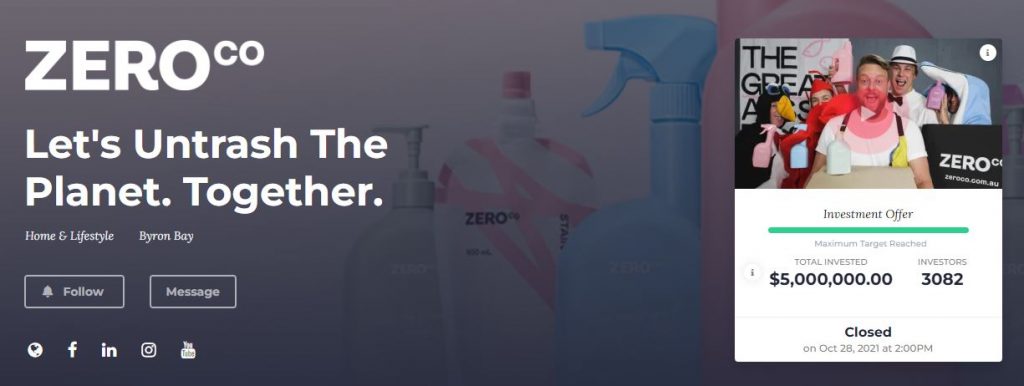
Giles Smith: Totally. That absolutely makes sense. What does the big picture look like for Zero Co? Will you be leveraging this capability you’ve built of closed-loop infrastructure to extend that to other brands?
Mike Smith: Well, there are three big moves for us. The first of which is to broaden our product range. At the moment, we've got 14 products in the range. We want to have that at 30 plus within the next 12 months.
The second part is to then export this solution, which we built here in Australia to the rest of the world. We're looking at launching into Europe and North America early next year.
And then the third part is this kind of what you spoke about, which is we recognize that we are not going to solve this problem by ourselves.
Even if we became the biggest FMCG company in the world, if it became bigger than Unilever, we are still not going to solve this problem without the other big companies like Procter and Gamble etc coming on board with this journey. So, part of what we are trying to do is create so much friction and tension in the market that they’ve got to change their business model to basically copy what we are doing. Because if we, as a tiny little startup can prove that you can do ocean cleanups, you can stop single use plastic, and you can do all of that profitably and you can scale that business model, then there's no reason why the big guys can't do it.
The other part may be getting to a position where we license our technology to one of those companies. We open the flood gates and start cleaning pouches and bottles for other companies. It's a big opportunity ahead of us and we totally recognize we cannot solve this problem ourselves.
Giles Smith: It sounds if you've got a multi-pronged approach, which is very, very smart. Now, before I close off, where can people go and get their forever bottles?
Mike Smith: Head to zeroco.com.au. You can get all of our products there and a little special offer for anyone listening. If you type in $20OFF at checkout, you'll get 20 bucks off your first single use plastic-free order from Zero Co.
Giles Smith: Sensational. Thanks a lot for that, Mike. Congratulations on the amazing journey to date and thank you for joining me today.
Mike Smith: Cheers. Thanks so much.





